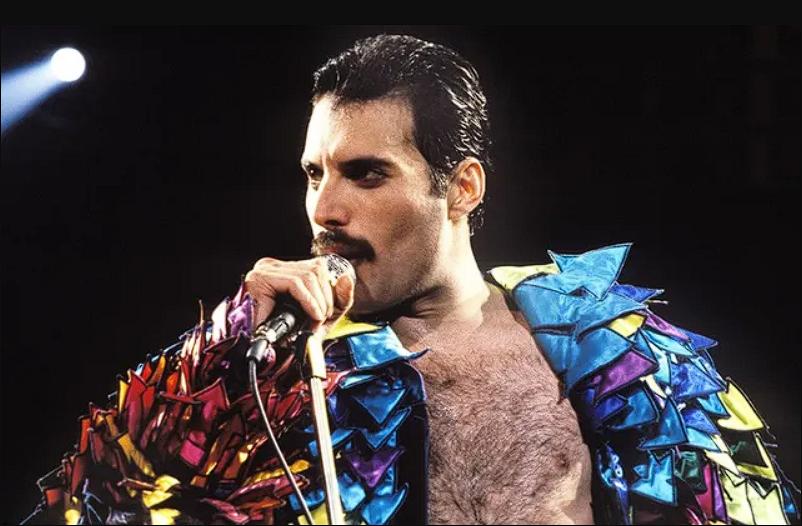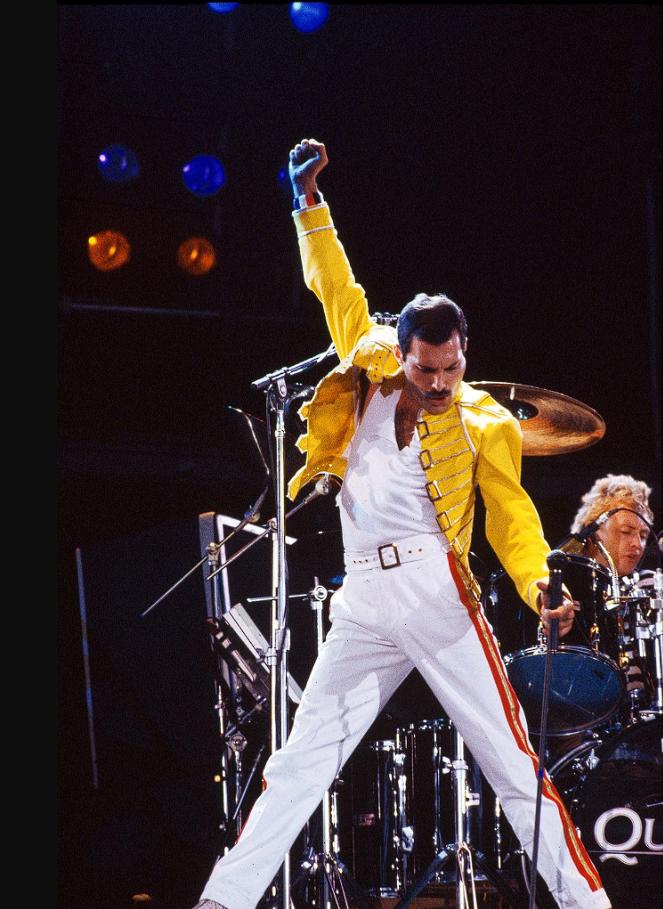Freddie Mercury: The Voice That Defied Boundaries and Shattered Expectations
Freddie Mercury’s name echoes in every corner of music history. With his dynamic stage presence and one-of-a-kind vocal range, he redefined what it meant to be a rock star. Known as the flamboyant frontman of Queen, Mercury’s life and legacy continue to captivate audiences worldwide. But behind the glittering costumes and electric performances, there existed a man of intense vulnerability, an icon whose life was as tragic as it was triumphant.
The Birth of an Icon: Early Life and Queen’s Formation
Born Farrokh Bulsara in Zanzibar on September 5, 1946, Freddie Mercury’s journey to superstardom was shaped by his early experiences as an immigrant in England. His family’s move to the UK marked the beginning of a life that would challenge social norms and push the boundaries of art and music.
Freddie’s musical talent became apparent at an early age. He enrolled at a boarding school in India, where he became known for his singing abilities. But it wasn’t until the formation of Queen in the early 1970s that his true potential as a frontman would come to life. Together with guitarist Brian May, drummer Roger Taylor, and bassist John Deacon, Queen would become one of the most influential and genre-defying bands in rock history.
The Stage Presence: A Living Flame
Freddie Mercury was more than just a singer; he was a force of nature. On stage, he was an electrifying performer, captivating audiences with his vocal range, unparalleled energy, and magnetic presence. Every move, every note, and every scream of his raw voice sent audiences into raptures.
His performances were a blend of theatricality and rock ’n’ roll, characterized by his extravagant costumes, dramatic gestures, and charisma that made him an undeniable star. Queen’s live performances, especially at iconic events like Live Aid in 1985, are still considered some of the greatest in rock history.
But beneath the showmanship and fame, Mercury’s inner world was much darker.
A Life of Contradictions: Fame, Loneliness, and a Hidden Struggle
Despite his success and fame, Freddie Mercury often felt isolated and conflicted. He grappled with the tension between his public persona and his private struggles. Mercury was deeply aware of the contrast between his flamboyant stage persona and the quiet, private man who longed for acceptance and love.
While many fans adored his larger-than-life personality, only a few knew the loneliness that plagued him. He had a complex relationship with his identity, and in the early days of his career, he carefully guarded his sexuality. Freddie loved fiercely but hid his romantic relationships, fearing the public’s judgment. It wasn’t until later in his life that he began to publicly acknowledge his sexuality.
A Final Act of Defiance: Mercury’s Battle with AIDS
In the mid-1980s, Freddie Mercury’s health began to deteriorate. He was diagnosed with AIDS, a disease that would ultimately take his life in 1991. But even as his body weakened, Mercury’s spirit remained unbroken. He continued to work on music, pouring his energy into creating some of Queen’s most poignant and defiant songs.
One of his final acts of defiance came with the recording of “The Show Must Go On.” Released just months before his death, the song encapsulated Freddie’s resilience, a triumphant declaration that even in the face of immense personal pain, he would continue to give the world his all. “The Show Must Go On” remains one of his most powerful songs, symbolizing his courage and relentless pursuit of greatness, despite the odds stacked against him.
The Enduring Legacy of Freddie Mercury
Freddie Mercury passed away on November 24, 1991, at the age of 45. The world mourned the loss of a man whose voice could command a stadium and whose passion for music changed the world. His death left a void in the music industry that no one could fill.
However, Freddie Mercury’s legacy lives on. Queen’s music continues to resonate with audiences, and Freddie’s influence on generations of musicians and fans is undeniable. Songs like “Bohemian Rhapsody,” “We Are the Champions,” and “Somebody to Love” transcend time and remain essential parts of the rock genre.
Mercury’s story is a testament to the power of authenticity and self-expression. He defied the constraints placed on him by society, shattering norms and building a legacy that will endure for generations.
Conclusion: Freddie Mercury’s Voice Still Lives On
Freddie Mercury may no longer be with us, but his voice continues to echo through the ages. The power, the passion, and the purity of his performances still captivate us today. Whether we’re listening to “Don’t Stop Me Now” or “Under Pressure,” Freddie Mercury lives on in every note, in every lyric, and in every heart that ever yearned for freedom and self-expression.
What is your most unforgettable memory of Freddie Mercury’s voice? Feel free to share it with us, and let’s keep the spirit of this legendary performer alive!
